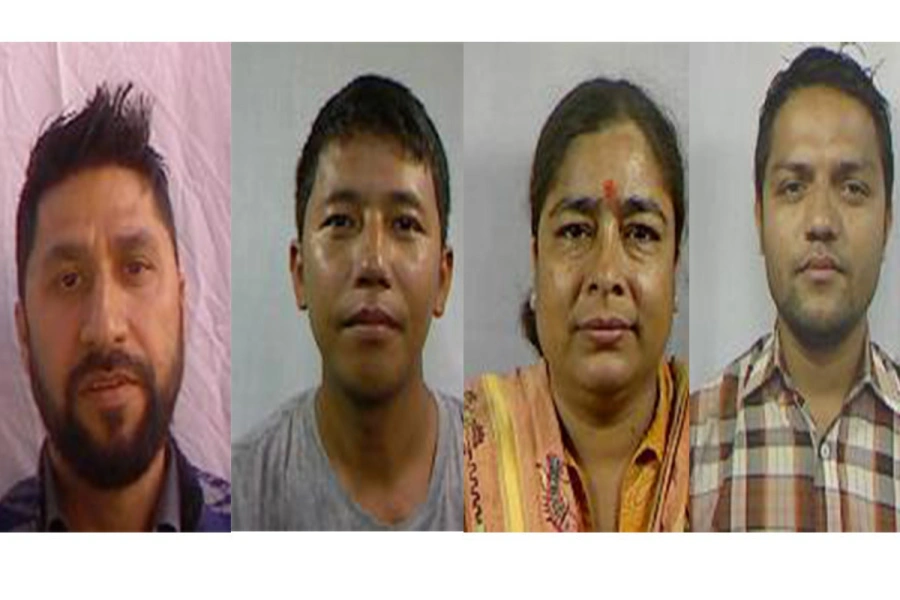KATHMANDU, Aug 23: Appointment of commissioners for the transitional justice (TJ) bodies has become further complicated after a prospective nominee declined the offer made to him by the major political parties.
The prospective nominee, Raman Kumar Shrestha, has declined to lead the Truth and Reconciliation Commission, saying it was not his area of interest.
The major parties had reportedly agreed to press the Recommendation Committee to name former attorney general Raman Shrestha as chief of the TRC, the TJ body where most of the cases of human rights violation by top politicians and security personnel are registered.
But Shrestha declined the offer, saying he was not fit for the job even though he may be acceptable to the parties. Of the three prospective candidates—Shrestha, Govinda Bandi and Surya Dhungel—the leaders of both the ruling Nepal Communist Party and the main opposition Nepali Congress had reached an understanding to select Shrestha.
Impressed by his down to earth style while he was chief legal adviser of the then government and especially while initiating an impeachment motion against then chief justice Sushila Karki, as well as his handling of the Bharatpur ballot vandalism case, both the parties were for his appointment as TRC chief.
Make this messy, cheesy, utterly delicious grilled corn

NCP Chairman KP Oli reportedly didn’t stand against Pushpa Kamal Dahal’s idea of appointing Shrestha, as he wishes to woo Dahal.
But the parties are now confused following Shrestha’s refusal. In handpicking Shrestha, the parties had already somewhat eroded the Recommendation Committee’s credibility, providing more ground for the already agitated rights organizations to raise objections.
“I have already declined to head the TRC. That’s not my area of interest,” Shrestha told Republica.
An established legal practitioner, Shrestha is already doing a brisk business handling a plethora of lucrative cases, said informed sources.
Tackling conflict-era cases will be a thankless task for anyone who heads the TRC . Both domestic and international rights bodies are sticking to their guns whereas the big political parties have shown no vision in approaching the cases and a pathetic lack of traction in taking rights bodies or the conflict victims into confidence.
Rights bodies including the National Human Rights Commission and the conflict victims have been pressing the government to revise the relevant laws before appointing the commissioners and to adopt transparency and credibility while making any appointments to the TJ bodies—TRC and Commission of Investigation on Enforced Disappeared Commission.
The NHRC has been considering recalling its representatives from the Recommendation Committee. It is for suspending the ongoing commissioners appointment process. In this it is in line with the international human rights organizations.
“I have already asked Prakash Wasti, who is representing the NHRC as Recommendation Committee member to come back if he feels any compunction or if any recommendation goes against established norms,” NHRC Chairperson Anup Raj Sharma told a group of conflict victims during an interaction.
Issuing a press statement Thursday, NHRC expressed serious concern over media reports that the political parties had already proposed Shrestha for leading the TRC.
Conflict Victims Common Platform, an organization of the conflict victims, has threatened to boycott the entire TJ process and approach the United Nations for justice if candidates already proven “incompetent” are appointed as commissioners of the TJ bodies.
“If the news reports of such shenanigans are true, we will call for a total boycott of both the commissions and commissioners in the days to come, retrieve all the applications filed by victims at the two commissions, and approach the United Nations and other international justice mechanisms for justice,” said the victims’ organization.
They have demanded that the “so-called democratic government” and political parties concerned stop adding to the distress of the victims, and to immediately announce a time-bound work plan for transitional justice overall.
“Under such a work plan, we demand that they move immediately toward amending the transitional justice law, and thereafter start a credible process to select capable commissioners who will be able to justly end the transitional justice process,” they said in a press statement issued Thursday.
With the parties informally proposing candidates for the TRC, questions have arisen over the credibility and moral standing of the Recommendation Committee which was formed by the parties themselves. The committee led by former chief justice Om Prakash Mishra is still struggling to come up with the prospective chiefs and members of the two TJ commissions.
Shrestha’s refusal has now thrown a spanner in the works. Recommendation Committee members say proposing Shrestha’s name without consulting them has further complicated the entire process.






































